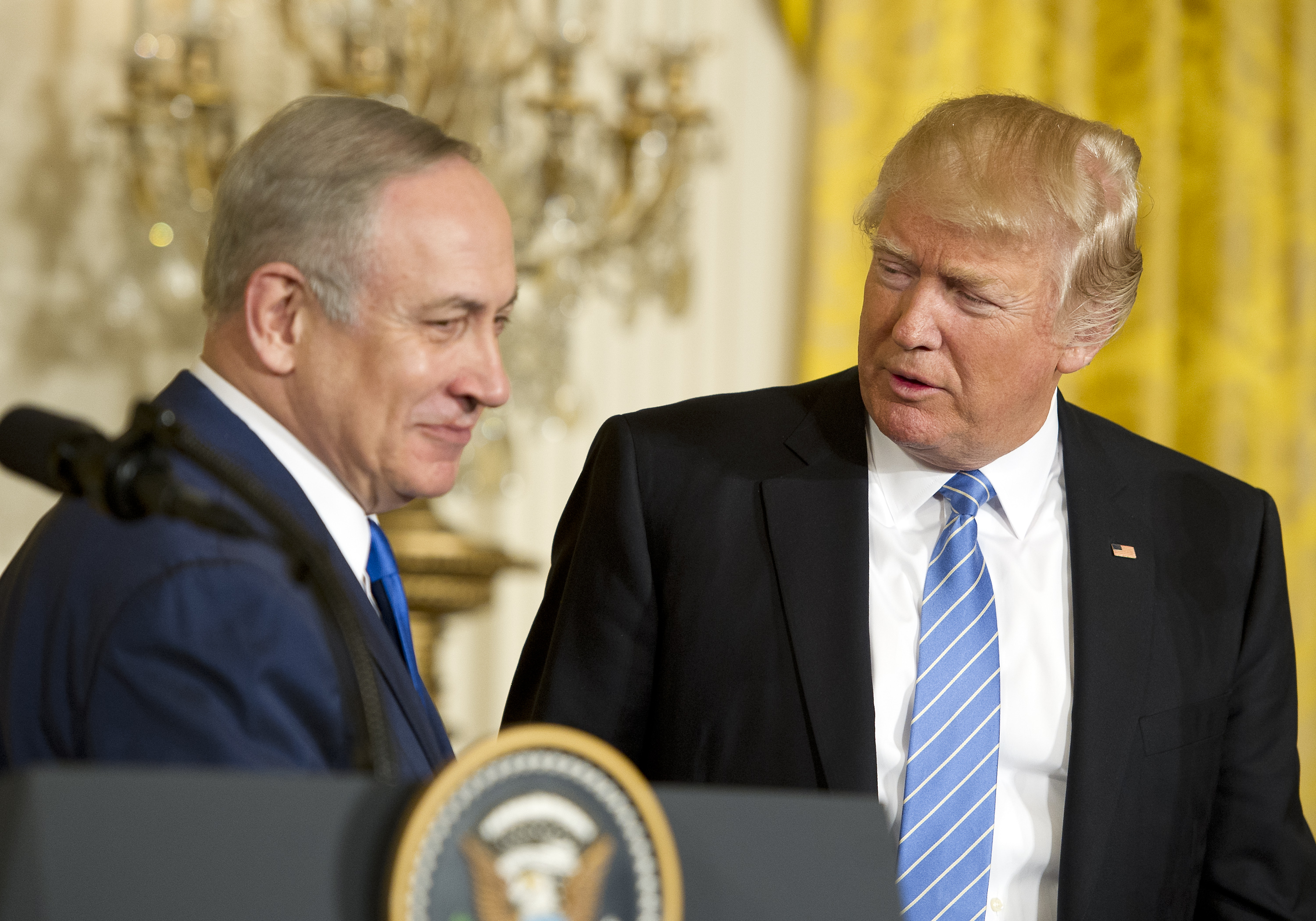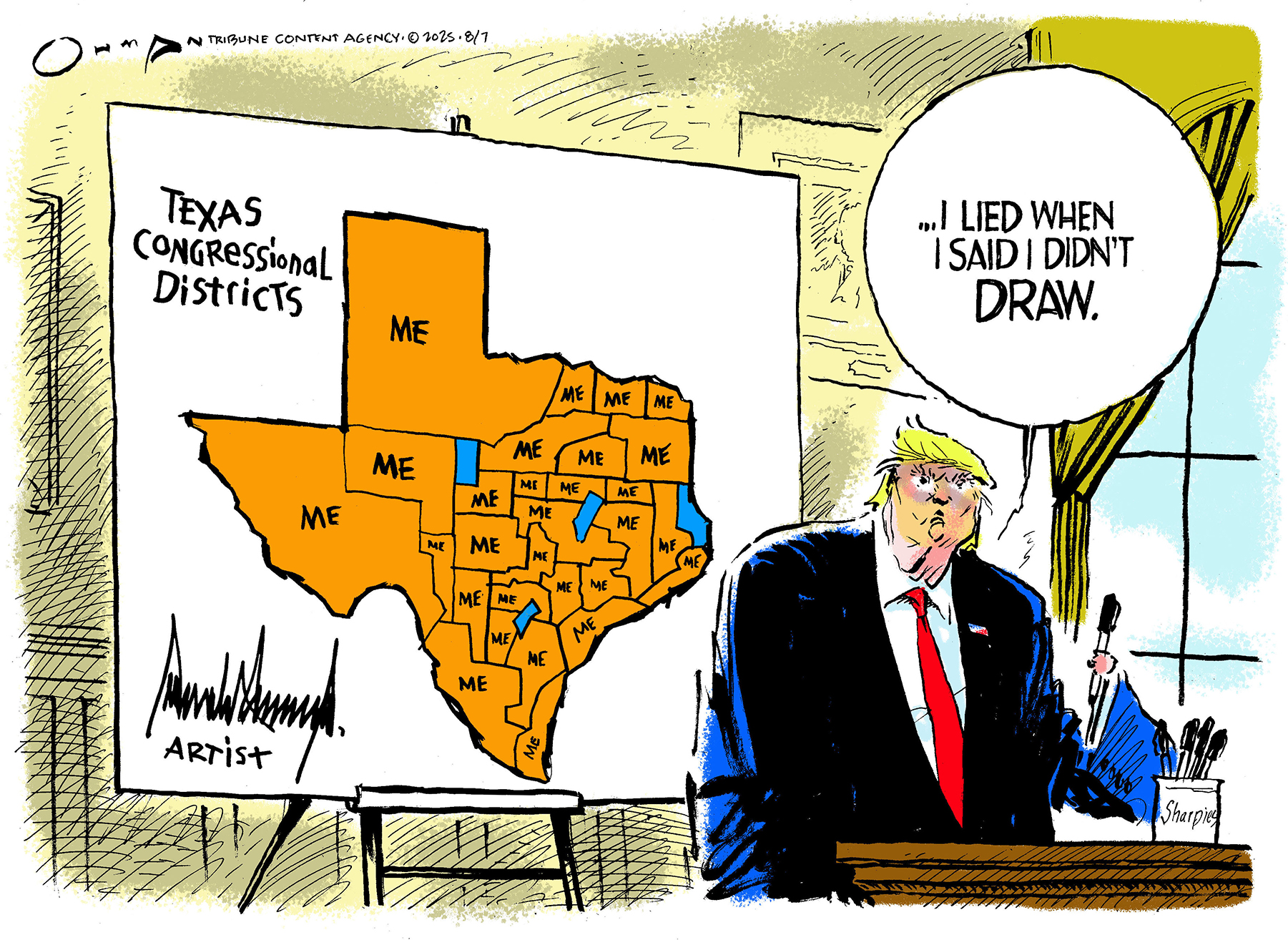Does President Trump even have a foreign policy?
If he does, it is fundamentally incoherent


President Donald Trump's foreign policy — if you can call it that — is already remarkably strange. And we're not even a month into his presidency.
The president's bizarre, aggressive phone calls with Mexican President Enrique Peña Nieto and Australian Prime Minister Malcolm Turnbull are already the stuff of SNL takedowns and global disbelief. The Germans, not known to be an excitable people, seem particularly alarmed as they face the prospect of trying to hold the liberal international order together all by themselves. And Trump appears bent on conducting sensitive diplomacy from the patio of his Richistan resort while wealthy patrons live-tweet the proceedings.
Meanwhile, Trump and his advisers keep sounding discordant notes on major issues. Do the Israelis have a green light to ramp up settlement activity? Are we seeking a strategic rapprochement with the Russians? The chaos has already forced the Trump administration to send Defense Secretary James Mattis to Asia seeking to contain the fallout. And the administration's hard work is undermined every time Trump's fingers fly to Twitter. At Foggy Bottom, civil servants are "simultaneously frustrated and relieved by the fact that they are limited in their ability to go out and try to clean up Trump's diplomatic mess because of all the vacancies at the department." Who is even in charge of this junkyard inferno? Is the guy that wrote "The Flight 93 Election" pulling the strings? Is it Stephen Bannon and his deep conviction that we are headed to war with China and Iran?
Subscribe to The Week
Escape your echo chamber. Get the facts behind the news, plus analysis from multiple perspectives.

Sign up for The Week's Free Newsletters
From our morning news briefing to a weekly Good News Newsletter, get the best of The Week delivered directly to your inbox.
From our morning news briefing to a weekly Good News Newsletter, get the best of The Week delivered directly to your inbox.
Don't even get me started on deposed National Security Adviser Michael Flynn and Trump's ties to Russia.
Believe it or not, things are actually worse than a lack of clarity about who's in charge, chaotic in-fighting at the White House, or even Flynn's galling dealings with Russia. Perhaps more worrying is that the underlying philosophy of Trump's foreign policy remains a mystery, too.
What does Trump even want from the world?
The answer to that question might just lie in Barry Posen's Restraint: A New Foundation For American Grand Strategy.
A free daily email with the biggest news stories of the day – and the best features from TheWeek.com
Posen is a prominent foreign policy intellectual whose views can most accurately be described as realist, but which have been embraced in some respects by libertarians. Like Trump, Posen lays into our very bad and failing European and Asian allies for ripping us off and ruining America's future. (Okay, he doesn't put it quite like that. But his basic critique of the U.S. alliance system is remarkably similar to Trump's.)
On the campaign trail, Trump repeatedly attacked our allies in NATO and in Asia for not paying enough for the security assistance they receive from the United States. Of Japan, Trump argued, "I want them to reimburse us at least for the cost." About our European allies, he remarked, "NATO is unfair, economically, to the United States. Because it really helps them more so than the United States, and we pay a disproportionate share." As with all things Trump, his claims were riddled with lies and exaggerations. Japan does pay substantially for the cost of hosting American troops, and while the U.S. pays more in absolute terms than other states for NATO, the cost structure is roughly proportional to the size of the alliance's economies.
But underneath the alternative facts and bluster, Trump at times sounds a lot like Posen, who likewise argues that the U.S. defense umbrella allows allies like Germany, Japan, and South Korea to spend less on their own security than they can actually afford. Posen argues that "the withdrawal of significant numbers of U.S. troops is necessary to convince Japan that it must take responsibility for its future and invest more in its own defense capabilities." In Restraint, Posen held that NATO should be preserved, but that member states should spend a higher proportion of their GDP on defense. Importantly, he believes that defense spending by alliance members should converge on about 2.5 percent of GDP, a number substantially smaller than we spend but higher than what most of our allies are forking over.
Grumbling about burden-sharing is hardly new, and assailing allies for free-riding has been a staple of Republican discourse for ages — remember the Bush administration's dismissal of "Old Europe"? But Restraint is more of a frontal assault on the longstanding post-WWII foreign policy consensus that regards the U.S. security umbrella as critical to avoiding European and Asian wars between great powers and to promoting general American commercial prosperity. This longstanding bipartisan consensus is certainly ripe for rethinking and critique by the kind of serious people who do not seem to exist in the Trump administration. If we, for instance, set Japan and South Korea adrift by withdrawing American troops, those states certainly might respond by increasing their own defense expenditures. Yet such an outcome need not necessarily result in arms races and increased tensions if the strategic fallout is carefully managed and planned.
In Posen's view, the U.S. spends trillions on outlays designed to fight and win land wars against similarly equipped opponents, and sinks enormous sums of money into weapons systems that either do not perform as expected, or do not contribute to current U.S. security needs. Again, President Trump seems to feel the same way, repeatedly berating the U.S. defense industry for bloated spending. In December, for instance, he lit into Lockheed Martin for the "tremendous cost and cost overruns" of the F-35 joint strike fighter.
Savaging the defense industry for graft and overspending is a strategy that could, theoretically, enlist the support of the left and the libertarian wing of the Republican Party. Posen, like many progressives and libertarians, believes that the U.S. should spend less money on defense overall, rather than more. High defense spending contributes to the structural U.S. budget imbalance, and is unnecessary in a contemporary security environment in which the U.S. still has no real military peer. This excess spending, results in "hundreds of billions of dollars in foregone U.S. domestic investments in everything from debt reduction to infrastructure."
Here is where Trump and Posen part ways. The president, remarkably, wants to take whatever he extorts from our allies and wrings out of the defense industry and plow it back into the defense labyrinth. The "rebuilding" of an American war machine that already spends roughly $700 billion a year was a constant, nonsensical refrain of the campaign (as it has been of nearly every Republican presidential campaign in memory). The precise shape of the black hole into which the new administration plans to blindly pour billions of dollars remains unclear. But both Trump and the congressional GOP are eager to break free from the marginal spending constraints of the sequester era.
The libertarian foreign policy critique also relies heavily on the idea that the rote protection of small client states like Israel damages U.S. security rather than bolsters it. Secure in the knowledge that America will come to the rescue, Israel can continue to engage in reckless policies like settlement expansion and refuse to agree to a territorial accommodation with its neighbors. Commitments to small countries like Latvia risk dragging the United States into a war with Russia even though bedrock American interests are not at stake there. Hard choices can be avoided because American help is just a phone call away.
But again, this is not how the Trump team appears to see things. While his rhetoric is often confused and confusing, Trump seems to want the Israeli check to be even blanker than it already is. The administration sees U.S. commitments to smaller NATO allies not as security irritants that could accidentally plunge us into war, but rather as a series of financial imbalances that can be rectified by our vassals paying up. In Trumpworld, other countries are like businesses in a protection racket, with America playing the role of a Sopranos goon sent in to kneecap the non-compliant. Ukraine is to be tossed aside not because defending it is against our interests, but because Trump thinks sacrificing Kiev can be part of a better "deal" with the Russians.
The results of this incoherent policy mess suggest two things. First, no one in the White House has read Restraint. (It is over one page long and thus too sophisticated for Trump's inner circle.) Second, policies that impugn allies, ramp up military spending, and deliberately undermine key aspects of the post-WWII order are likely to be seen by both adversaries and allies as threatening behavior.
Imagine for a second if a government surged to power in Berlin promising "Germany First," a sharp increase in military spending, and a policy of seeking to extract every last dollar from other countries in the EU. It is less likely that other states would get in line and more likely that they would band together in an anti-German front. American elites would be panicking.
Well, that's the view from everyone on the outside looking in to the White House right now. They see a clique of aggressive, inexperienced policymakers who seem to be committed to adopting the worst foreign policy idea from every stop on the ideological spectrum.
David Faris is an associate professor of political science at Roosevelt University and the author of It's Time to Fight Dirty: How Democrats Can Build a Lasting Majority in American Politics. He is a frequent contributor to Informed Comment, and his work has appeared in the Chicago Sun-Times, The Christian Science Monitor, and Indy Week.
-
 August 9 editorial cartoons
August 9 editorial cartoonsCartoons Saturday's political cartoons include snake oil salesmen, Ghislaine Maxwell's new residence, and more
-
 5 hastily redrawn cartoons about redistricting
5 hastily redrawn cartoons about redistrictingCartoons Artists take on Donald Trump's draughtsmanship, the White House ballroom, and more
-
 Bonnie Blue: taking clickbait to extremes
Bonnie Blue: taking clickbait to extremesTalking Point Channel 4 claims documentary on the adult performer's attention-grabbing sex stunts is opening up a debate
-
 Ghislaine Maxwell: angling for a Trump pardon
Ghislaine Maxwell: angling for a Trump pardonTalking Point Convicted sex trafficker's testimony could shed new light on president's links to Jeffrey Epstein
-
 The last words and final moments of 40 presidents
The last words and final moments of 40 presidentsThe Explainer Some are eloquent quotes worthy of the holders of the highest office in the nation, and others... aren't
-
 The JFK files: the truth at last?
The JFK files: the truth at last?In The Spotlight More than 64,000 previously classified documents relating the 1963 assassination of John F. Kennedy have been released by the Trump administration
-
 'Seriously, not literally': how should the world take Donald Trump?
'Seriously, not literally': how should the world take Donald Trump?Today's big question White House rhetoric and reality look likely to become increasingly blurred
-
 Will Trump's 'madman' strategy pay off?
Will Trump's 'madman' strategy pay off?Today's Big Question Incoming US president likes to seem unpredictable but, this time round, world leaders could be wise to his playbook
-
 Democrats vs. Republicans: which party are the billionaires backing?
Democrats vs. Republicans: which party are the billionaires backing?The Explainer Younger tech titans join 'boys' club throwing money and support' behind President Trump, while older plutocrats quietly rebuke new administration
-
 US election: where things stand with one week to go
US election: where things stand with one week to goThe Explainer Harris' lead in the polls has been narrowing in Trump's favour, but her campaign remains 'cautiously optimistic'
-
 Is Trump okay?
Is Trump okay?Today's Big Question Former president's mental fitness and alleged cognitive decline firmly back in the spotlight after 'bizarre' town hall event
